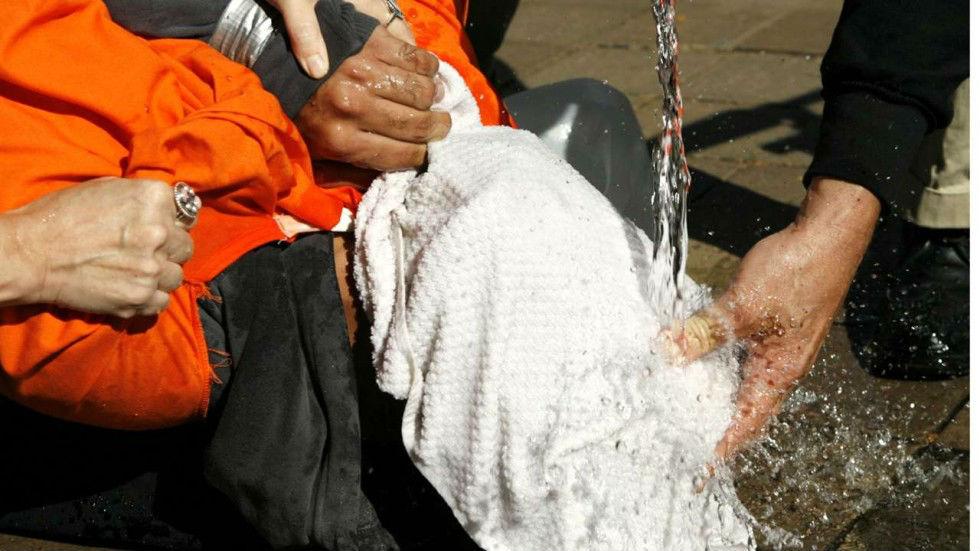Donald Trump's CIA deputy director pick is agent who ran notorious 'black site' prison in Thailand
Gina Haspel served as an undercover agent for decades years

Your support helps us to tell the story
From reproductive rights to climate change to Big Tech, The Independent is on the ground when the story is developing. Whether it's investigating the financials of Elon Musk's pro-Trump PAC or producing our latest documentary, 'The A Word', which shines a light on the American women fighting for reproductive rights, we know how important it is to parse out the facts from the messaging.
At such a critical moment in US history, we need reporters on the ground. Your donation allows us to keep sending journalists to speak to both sides of the story.
The Independent is trusted by Americans across the entire political spectrum. And unlike many other quality news outlets, we choose not to lock Americans out of our reporting and analysis with paywalls. We believe quality journalism should be available to everyone, paid for by those who can afford it.
Your support makes all the difference.Donald Trump, who has spoken of his wish to reintroduce torture, has selected an intelligence agent who ran a notorious “black site” prison in Thailand to be deputy head of the Central Intelligence Agency.
Gina Haspel, who served as an undercover agent for decades years, will be the number two to CIA Director Mike Pompeo.
“[She] is an exemplary intelligence officer with an uncanny ability to get things done,” Mr Pompeo said in a statement.

“We are fortunate that someone of her intellect, skill, and experience will be our deputy director.”
But there are concerns that the appointment of Ms Haspel could be another indication that Mr Trump is preparing to restore the use of waterboarding and other methods of torture.
The Associated Press said that Ms Haspel, the first female career CIA officer to be named deputy director, has extensive overseas experience, including several stints as chief of station at outposts abroad.
In Washington, she has held several top senior leadership positions, including deputy director of the National Clandestine Service and deputy director of the National Clandestine Service for Foreign Intelligence and Covert Action.
But the role for which she has attracted the most attention was as a senior member of the CIA’s team involved in interrogation. One report from 2013, that did not name Ms Haspel because she was still undercover, said she had an “extensive role” in torturing detainees.
She also ran the CIA’s secret prison in Thailand where terror suspects were “subjected to waterboarding and other harsh techniques”.
Politico said that two Democratic senators, Ron Wyden and Martin Heinrich, had written a classified letter to Mr Rrump expressing their concerns about Ms Haspel.
In an unclassified version of the letter, also sent to the White House, they wrote: “Her background makes her unsuitable for the position.”
Senator Mark Warner of Virginia, vice chairman of the Senate Select Committee on Intelligence, also voiced concerns.
“I want some reassurance from her that she intends to comply with both the spirit and the letter of the law,” he said. “I plan to meet with her as soon as possible to secure that commitment from her.”
Mr Trump has often spoken of his belief that “torture works” and that the US should be willing to make use of techniques such as waterboarding in its efforts against militant groups such as Isis.
However, last month, at a news conference with British Prime Minister Theresa May, Mr Trump said he would leave the decision on whether or not to use it, up to his Defence Secretary, Mr Mattis, whom he described as a “general’s general”.
“He has stated publicly that he does not necessarily believe in torture or waterboarding, or however you want to define it… I don’t necessarily agree,” said Mr Trump.
Join our commenting forum
Join thought-provoking conversations, follow other Independent readers and see their replies
Comments